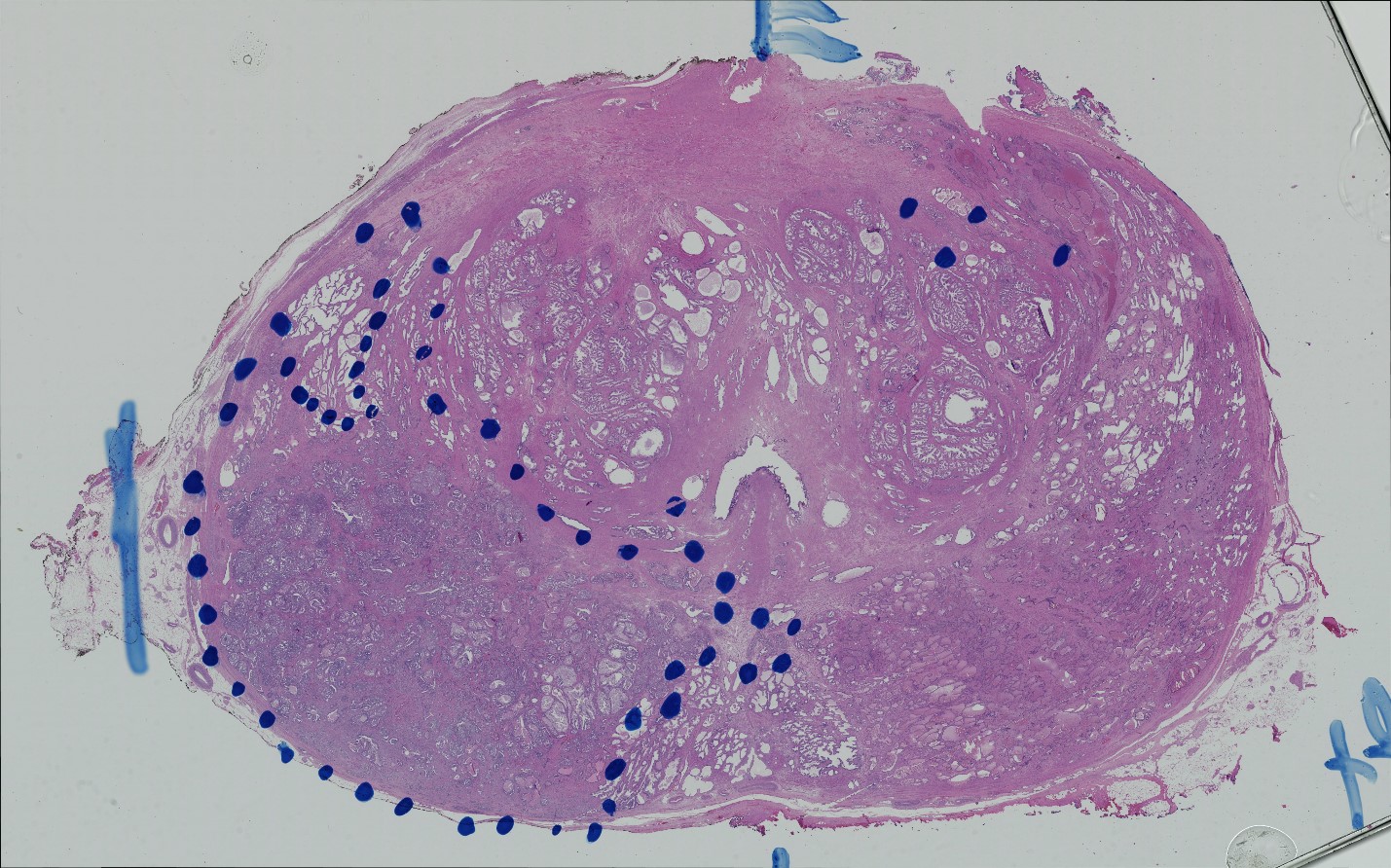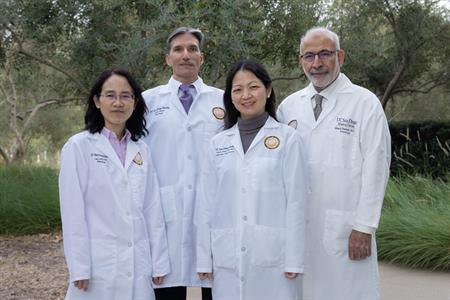Pathologists have an important role in medicine, and nowhere is this more evident than in the care of cancer patients. The Genitourinary Pathology Service at UC San Diego provides diagnostic services related to neoplastic and non-neoplastic diseases of the prostate, urinary bladder, urethra, kidney, testis, penis, and adrenal gland.

Developing a personalized treatment plan is a team effort, with many different specialists working together to provide the best possible care for each patient. The pathologist's primary role is to determine the correct diagnosis by examining thin sections of tissue on glass slides prepared from tissue removed from the patient. Using advanced histochemical, immunohistochemical, immunofluorescence, electron microscopic, and molecular techniques, we determine which disease is afflicting the body. For a neoplasm, we determine whether it is benign or malignant, how far the tumor has grown within the removed organ, whether it has spread to lymph nodes or other organs, the completeness of excisions, and in some instances determine phenotypes that may be of prognostic/predictive significance. Our diagnostic reports represent the state-of-the-art in diagnostic reporting, using national and international guidelines such as those published by the World Health Organization Classification of Tumors of the Urinary System and Male Genital Organs, and in the College of American Pathologists Cancer Protocols. This diagnosis is then shared with oncologists and surgeons, who will work with patients to devise an appropriate treatment plan. Oncologists and surgeons translate our diagnoses and pathological analyses to their patients in a manner that optimizes communication, and they generally treat patients based upon standardized protocols for these diagnoses.
Our team is comprised of attending genitourinary pathologists that are certified by the American Board of Pathology, are optimally trained, and who collectively, have extensive professional experience in the subspecialty. Standardization and uniformity of diagnostic approaches and terminology are assured by close and regular interactions amongst our team members and through regular consensus conferences. Our team maintains close collaborative clinical and research relationships with our surgeons, oncologists, radiation oncologists, and radiologists, to optimize patient care and translational research. We are available for consultations on all aspects of Genitourinary Pathology.
Meet the Faculty:

Ahmed Shabaik, M.D., Director of Genitourinary Pathology Service.
Li Lei, M.D., Ph.D.
Andres A. Roma, M.D.
Haiyan Zhang, M.D., Ph.D.